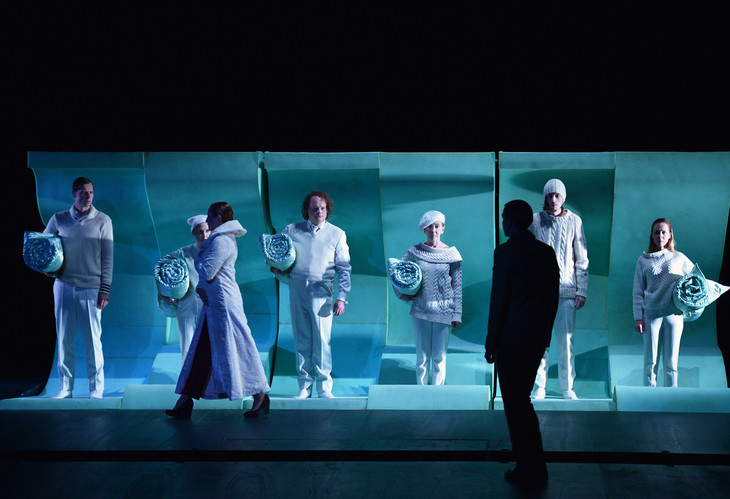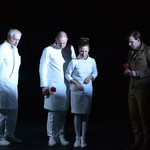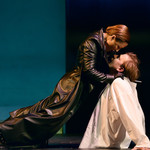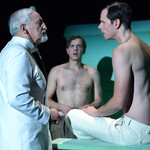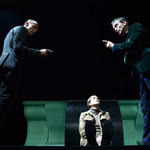Thomas Mann
The Magic Mountain
Slovene National Theatre Drama Ljubljana, Slovene Permanent Theatre in Trieste
Première 27. 9. 2014, SNG Drama Ljubljana; Slovene National Theatre Drama Ljubljana; 7. 11. 2014, Slovene Permanent Theatre in Trieste
Running time 3 hours. Two intervals.
Original title Der Zauberberg
Director Mateja Koležnik
Translator Aleksandra Rekar
Author of stage adaptation and dramaturg Katarina Pejović
Set designer Henrik Ahr
Costume designer Alan Hranitelj
Composer Mitja Vrhovnik Smrekar
Choreographer Magdalena Reiter
Lighitng designer Pascal Mérat
Autohr of video projections Andrej Intihar
Language consultant Arko
French language consultant Primož Vitez
Assistant costume designer Andrej Vrhovnik
Cast
Hans Castorp Aljaž Jovanović
Joachim Ziemßen Romeo Grebenšek
Lodovico Settembrini Igor Samobor
Leo Naphta Marko Mandić
Directing physician Behrens Vladimir Jurc
Dr. Krokowski Luka Cimprič
Madame Clawdia Chauchat Nataša Barbara Gračner
Mynheer Pieter Peeperkorn Ivo Ban
Frau Stöhr Silva Čušin
Marusja Patrizia Jurinčič AGRFT
Paravant Gašper Jarni as guest
Hermine Kleefeld Saša Mihelčič
Herr Albin Lovro Finžgar AGRFT
Adriatica von Mylendonk Sabina Kogovšek
Dining-room girl Nina Valič
The Magic Mountain is one of those 20th-century novels that to this day hold a mysterious attraction both for readers, critics and theorists. The story of the young ship-building engineer Hans Castorp who comes for three weeks to a posh sanatorium in the mountains to visit his sick cousin only to become ill himself and remain there for no less than seven years, is the starting point for one of the most complex narratives on the matters of body and spirit. It encompasses the ideological and philosophical questions of the turbulent period at the onset of the 20th century as well as a broader depiction of a decadent society. Given the escapist nature of the secluded and protected sanatorium environment, this depiction primarily focuses on pulmonary patients; yet, it discloses first and foremost the image of a deeply sick world (our own including) of questionable and deteriorating values. The author Thomas Mann permeated this health-house microcosm with irony, introducing at once poetry and the magic of the last mysteries of body, soul and heart as well as the critique of the self-enveloped elite and the institutions that make profit by cherishing illness. The Magic Mountain ends with the departure of the main character to the WWI frontlines, thus offering an impetus for reflection in the year of the 100th anniversary of the beginning of the Great War.

